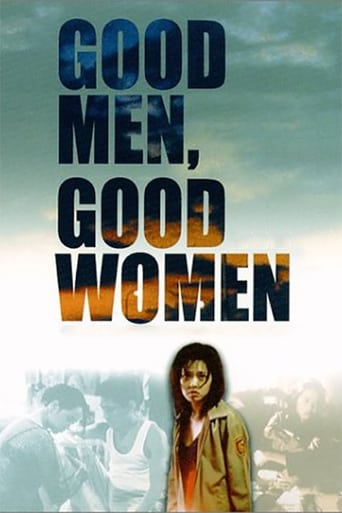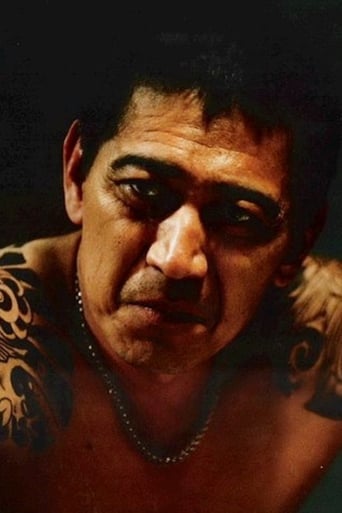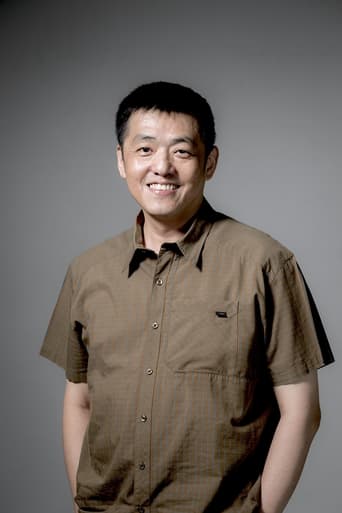Good Men, Good Women (1995)
An actress preparing to play in a historical epic is terrorized by someone faxing her pages from her stolen diary; has colorful flashbacks of her affair with a now-deceased man; and imagines black-and-white film-within-a-film scenes of the movie she is about to appear in.
Watch Trailer
Free Trial Channels
Cast


Reviews
Expected more
Disturbing yet enthralling
I am only giving this movie a 1 for the great cast, though I can't imagine what any of them were thinking. This movie was horrible
There is just so much movie here. For some it may be too much. But in the same secretly sarcastic way most telemarketers say the phrase, the title of this one is particularly apt.
Hou's concept is an interesting one: instead of a straight linear narrative either about the White Terror period in Taiwanese history or about an actor with a dead gangster boyfriend, he overlaps the two, and adds a further layer by putting the gangster a couple of years ago, and the actress now getting ready to act in a historical film about the White Terror, while being bugged in the present by somebody who sends her faxes of a stolen diary about the gangster, and calls and breathes into the phone. Hou isn't trying to spoon-feed us, and that's admirable. He is also allowing us to ponder complex inter-historical relationships. But the effect of the spliced layers is jarring and doesn't always work. Another DVD reviewer (like me), John Wallis, of DVD Talk, has already commented that he "could not see how the film about the White Terror atrocities affected the actress in any way -- other than it made her lamenting over her lost boyfriend and soiled past seem pretty trivial." Is it that bad? Nick Schrager and Aquerello have offered the interpretation that after the gangster boyfriend's death, Liang Ching, the actress, is guilty of a " betrayal of his memory during her subsequent years as a drug-addled bar hostess." Schrager concludes that "The implication, as subtle as it is powerful, is that Liang's struggle to come to grips with her own disloyalty reflects modern-day Taiwan's attempts to confront (and accept) its own shameful past persecuting communists." Aquerello puts it that "Liang's betrayal of Ah Wei's memory is a modern day, personal manifestation of a national, historical event: the seemingly random persecution of Taiwanese people by their own government during the White Terror." That's a nice idea, but in fact Liang was a drug-addled bar hostess while involved with Ah Wei (Jack Kao), the gangster; when they have a discussion of her pregnancy while caressing in front of a mirror -- a stagy but compelling scene many writers have commented favorably on -- she points out that being a bar hostess, she has slept with many men, and she doesn't know for sure who the father is. ("Still, I'd like to see a little Ah Wei," says Ah Wei, rather lamely.) The guilt is not so clear. What is clear is that Liang Ching has had an unsavory past, and that her dissolute life has been a far cry from the dedication of the brave revolutionary she is going to portray on screen.What is also clear (though the Fox Lorber DVD tonal quality is mediocre, particularly in the black and while segments) is the idealism of the Taiwanese nationalist fighters, who go to China to fight the Japanese who have been oppressing them but then after the war is over, are systematically exterminated (in a policy designed to please America, by the way). Some of these scenes, such as one where one person after another is briefly interrogated, have an arresting and somehow heartrendingly tender vérité quality, as does the scene where female fighters are taken from a prison room to be executed. There is a wealth of beauty in the film, even when the present-day sequences seem most contrived and boring, like a gangster dinner with city contractors just before Ah Wei's shot.It is also true as Acquerello says that, "As Liang becomes the entrusted emissary for the story of Chiang Bi-Yu's struggle, she gradually becomes the generational conduit between Taiwan's turbulent past, and the decadent, uncertain future." That's about all we can say; what Hou means by this linkage is hard to guess, and perhaps only meant to be pondered, without any conclusions being drawn.Howard Shumann has written a typically clear and informative review of "Good Men, Good Women" for Cinescene that clarifies the general structure and historical references of the film. My own reactions are quite different, however. I wouldn't be as extreme as the IMDb commenter who has called Hou's film-making "cinematic masturbation," or use the language of Sam Adams of the Philadelphia City Paper (2002) who calls "Good Men, Good Women" "a confused exercise" and suggests it's self-indulgent. But I have to agree with Adams that, "Good Men feels so arbitrary that its closing-title dedication to the victims of the anti-Communist purges of the 1950s is almost shocking; it's hard to believe the director could take a subject that seriously and make a film this self-indulgent." The shifts from the present-day actress's discomfort and her flashbacks to life with Ah Wei to the historical film-making never seem predictable. Some might find that intriguing; to me is merely seems arbitrary and random."Good Men, Good Women" is far more multi-layered and ambitious than a purely present-day musing like "Millennium Mambo" (despite the latter's tacked-on comment that the voice-over occurs ten years later). But the randomness of the splicings makes the implied relationship questionable, even frivolous. Hou may be better off separating his historical treatments from his modern ones, as he does quite simply with three segments in his recent "Three Times."
This movie achieved substantial impact on me, in a good way. Firstly, it's the first Hou Hsiou Hsien film that I have been able to sit through in its entirety. As much as I claim to admire film as art, I will not ever consider giving FLOWERS OF SHANGHAI another attempt. Secondly, I now see Hou Hsiou Hsien as one of the most respectable craftsman in cinema, even more admirable than Zhang Yimou from China or my personal favorite, Wong Kar Wai from HK, and I'll give my reasons. Zhang and Wong take risks with their creations, but they are relatively easy to grasp, and even have some entertainment values. For example, Zhang's TO LIVE is an emotionally heavy drama that spans several generations before, during, and after Cultural Revolution. Even if one doesn't have taste for art films, one could enjoy its sheer melodrama. In the case of Wong, his Chungking Express has a huge cult following. It has a sweet touch of spontaneity that makes it watchable to anyone, although the disconnected storytelling could throw some people off.So Zhang can do intense drama, and Wong can direct spontaneous acting. Hou Hsiou Hsien (or his colleagues Tsai Ming Liang and Edward Yang), however, is of a different breed. His films (that I've seen anyway) are casual but deliberately never ever strive to be interesting. For example, there's no moody music, showy cinematography, or thought-provoking dialogue to spice things up while you watch a 2-minute long take of people walking. Everything is just as indifferent as it is and nothing more; then it's up to us to give it a meaning -- that is the essence of MINIMALISM which define Hou's body of work. Minimalist cinema is by far the most difficult to grasp and sit through (since "nothing happens," some will understandably accuse), and many viewers detest it with a passion. Whether this style is actually effective I do not know, "all I know is this: once I was blind and now I can see." Good Men Good Women is an eye opener for me.In recent years, several well-noted Chinese art house filmmakers have upgraded to generously budgeted blockbusters: Ang Lee with Crouching Tiger, Zhang Yimou with Hero and Flying Dagger, He Ping with Warriors of Heaven & Earth, Fruit Chan with Three Extremes: Dumpling, not to forget Cheng Kaige's special effects fantasy extravaganza The Promise on the way, followed by Wong Kar Wai reportedly to film an American feature The Lady from Shanghai with Nicole Kidman, and words of Hou's Taiwanese colleague Edward Yang to direct an animation produced by Jackie Chan. In such a relaxing trend, will Hou Hsiou Hsien have any surprises for us, or will he continue to explore Taiwan in minimalist glory?
Encouraged by American foreign policy, the Kuomintang government in Taiwan in the 1950s began a policy of repression of real or suspected communists who were rounded up by the military police, detained, and often shot. This event, known as the White Terror, was suppressed in Taiwan, along with the 2-28-47 massacres, without any public discussion for forty years. Only the trees were witnesses and the story could not be told until martial law was lifted in 1987, yet even now remains clouded with hints of undisclosed crimes. Hou Hsiao-hsien's 1995 film Good Men, Good Women dramatizes the Taiwanese people's fear and reluctance to deal with their past, showing the effects of Taiwan's forgotten history on the destiny of an actress in present-day Taiwan. Dedicated to all the political victims of the 1950s, the film uses the device of a "film within a film" to tell the story of real-life activists Chiang Bi-Yu (also played by Inoh) and her husband Hao-Tung (Giong Lim) who fought in China against the Japanese during World War II but were arrested as Communists when they came home. Good Men, Good Women takes place in three different time sequences: the contemporary world of actress Liang Ching (Annie Shizuka Inoh), her recollection of her recent past as a drug-addicted barmaid, and the world of a yet to be made film about resistance fighters in the 1940s. Hou suggests a contrast between the sterile, corrupt lives of the present generation and the young people of the past who acted with a social conscience. While it is a complex and elliptical film, it is one of Hou's greatest, filled with tenderness and sensuality and an aching melancholy for a world whose promise has remained unfulfilled. The film opens with a parade of young people dressed as peasants who march toward the camera singing a joyous song: "When yesterday's sadness is about to die. When tomorrow's good cheer is marching towards us. Then people say, don't cry. So why don't we sing." The camera then cuts to present day Taipei where an unidentified caller telephones Liang Chang but refuses to speak. The caller has stolen her diaries, and faxes her the pages daily prompting her to recall her tragic relationship with Ah Wei (Jack Kao), a gangster who died in a shootout. The film intersperses scenes of intimacy between the two lovers with the world of the 1940s where Chiang Bi-Yu and Hao-Tung, have left Taiwan for the Chinese mainland to support the anti-Japanese resistance. The "film within a film" shows how Chiang and Hao are forced to put their children in foster care and Liang identifies with Chiang, drawing parallels from her own experience of having to give up the things she loved the most.Hou shows that events buried in a nation's past can have far reaching consequences and that history may be indistinguishable from personal memory. Yet the film is not one of ideas but of images and Hou has provided some memorable ones; for example, when Liang sits before a mirror putting on her makeup as Ah Wei sits closely beside her talking about the possibility of her being pregnant. It is a mundane event, yet Hou imparts it with a mysterious and timeless quality. In many ways, Good Men, Good Women is typical of Hou's films with its static camera, long takes, and rhythms of everyday life, yet it is also his most political, a searing indictment of the squandering of a nation's heritage, allowing us to see that a country, like its people, cannot redeem its future until it tells the truth about its past.
Director Hsiao-hsien Hou seem to be fascinated with the disconnected newer generations in contemporary Taiwan, including it in other films like "Goodbye South, Goodbye". In this film, he takes on the period after the Nationalist retrieved to Taiwan and parallels it with the modern day, putting one story in another as a story which the film is to be based on within a film. In both stories, it is about the turbulent times in which the people as a whole act self destructively, either doing what they think is right as in the Nationalist government or due to their disassociation with the rest of society. The anonymous faxes in the modern period seem to be an indication that incidences either swept behind or intentionally forgotten will come back to haunt you until the issue is confronted. A message that the brutality that happened after the Nationalist's arrival in Taiwan should not be forgotten or ignored, but should eventually be dealt with.This is a movie that bravely confronts issues in a country that is too preoccupied with trying to juggle for positions in the global market. A reminder to everyone that a country's history does not consist of only the valiant highlights, but also of shameful past that should not be discarded.








